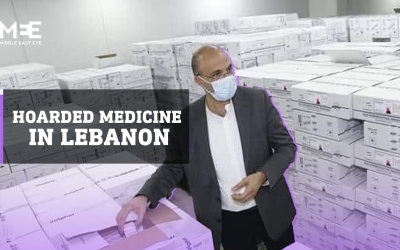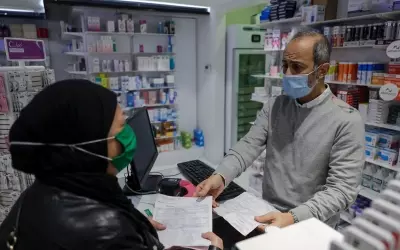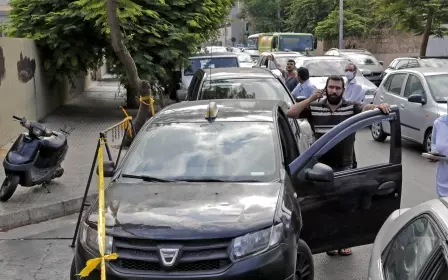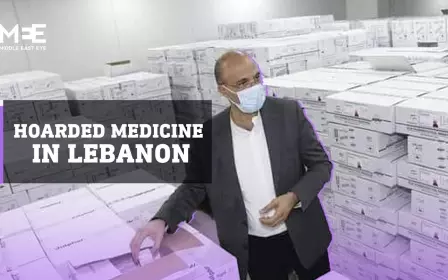Lebanon: Army raids expose medicine hoarders amid dwindling supplies
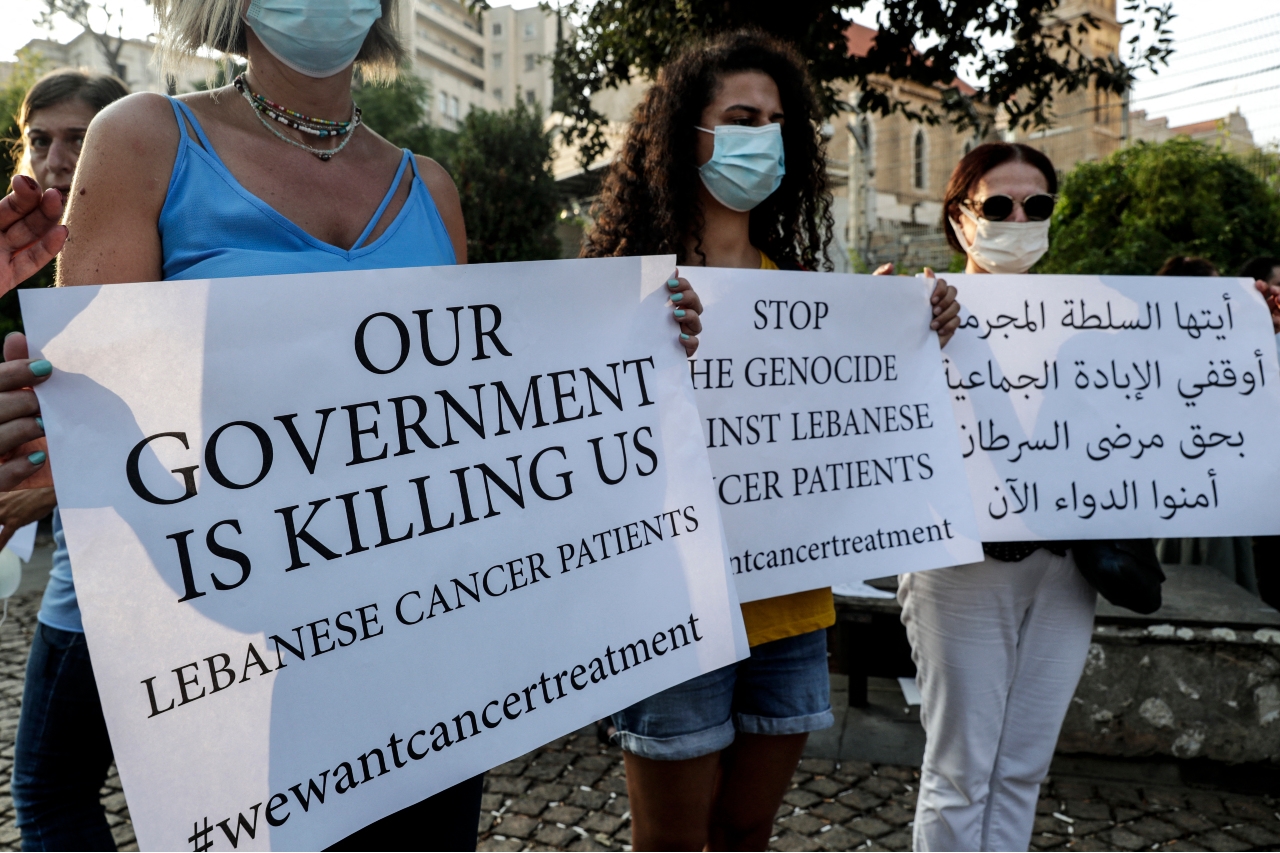
The Lebanese army and security agencies have undertaken a series of raids in recent weeks as they search for hidden stockpiles of medicine which are increasingly nowhere to be found in pharmacies or hospitals.
One raid that made major headlines was at a warehouse that belonged to Rabih Hassouneh, a member of the Future Movement, who unsuccessfully ran for parliament alongside former prime minister Saad Hariri.
According to the army, Hassouneh, who also previously headed Lebanon’s pharmacists' syndicate, hoarded a huge stash of medicine intended to be sold on the black market.
Some of those medicines, which including a large quantity of drugs for treating cancer, were past their expiry date.
The authorities have since arrested Hassouneh, and according to Public Financial Prosecutor Ali Ibrahim, he and other hoarders have been forced to sell their stock to pharmacies at the official subsidised rate.
Hassouneh has yet to comment on the incident, but furious Lebanese bombarded his most recent Facebook post prior to the raid with angry comments.
Many called him a murderer and a criminal, while others shared photos of a tearful Bahaa Constantine, an engineer and cancer patient who took part in a protest with advocacy group the Barbara Nassar Association for Cancer Patient Support.
Deadly impact
Lebanon's central bank subsidises medicines, fuel and wheat to keep them at the country’s official pegged rate of $1 to 1,500 Lebanese pounds.
However, with its reserves running dry and the local currency having lost 90 percent of its value, the programme is on its last legs.
Suppliers have told hospitals that they are out of stock, but many, like Hassouneh, have actually hoarded their supplies to sell at a higher price, either informally or once the authorities officially lift the subsidies.
Hani Nassar, the president of the Barbara Nassar Association, told Middle East Eye that the situation has gradually worsened since the onset of the country's economic crisis in 2019.
“Patients have become more insecure, having to change hospitals, doctors, and even the regions where they get treatment, because of medicine shortages,” Nassar said.
“Over the last few months, even the larger hospitals started to lose some of their treatments.”
Anger
Nassar’s organisation was named after his late wife Barbara, and provides financial and moral support for cancer patients in Lebanon.
It was an uphill struggle in a country lacking viable public health services like Lebanon, but the economic crisis has created even more obstacles.
“We’ve been promised that cancer medicines would always be subsidised,” Nassar told MEE, trying to quell his anger.
“But we never thought cancer medicines would be both subsidised and unavailable.”
With the health ministry and central bank at odds over the medicine subsidies policy, Nassar fears that many treatable cases will get worse.
In fact, he calls it a “massacre”.
Tricking the public
But will Hassouneh’s arrest ease concerns? In a similar raid, Health Minister Hamad Hassan and security agencies raided a warehouse with hoarded medicines co-owned by the brother of a Hezbollah MP.
Like Hassouneh, he was arrested, and his stock was forcefully sold to pharmacies and the public at the official rate, but the minister seemed more than content to have him sign a pledge to stop hoarding.
Lebanon’s security agencies have also been raiding petrol stations and suppliers allegedly hoarding petrol and diesel fuel.
The most notable case was a warehouse that belonged to Ibrahim Sakr, who owns a handful of gas stations and is a member of the Lebanese Forces party.
His file has not been transferred to the financial prosecutor yet, and he has received the full backing of the party, who say he is not a hoarder.
'These goods should be confiscated, and hoarders shouldn’t be seen making any profit out of them'
- Karim Nammour, Legal Agenda
This has left activists and lawyers like Karim Nammour, of local watchdog Legal Agenda, suspicious of the Lebanese authorities.
“Ideally this would be an extension of asserting the rule of law on hoarders and similar types of crimes,” Nammour explained to MEE.
“Nevertheless, it can also be - and many elements lead to that conclusion - a PR stunt to lure the public into thinking that the regime is doing its job in imposing the rule of law, when, in reality, it isn’t.”
Nammour is concerned that most of the raids did not target major hoarders - licensed companies that import and distribute subsidised goods.
He is also skeptical of the fact that such hoarders were still allowed to generate revenue and sell their products, even after they were exposed for their crimes.
“These goods should [instead] be confiscated, and hoarders shouldn’t be seen making any profit out of them,” he said.
Bafflement
On top of this, Lebanon’s judiciary is not financially or administratively independent from the government, which leaves it vulnerable to political manoeuvring, and ineffective in combating the country’s rampant corruption.
But with political paralysis persisting in Lebanon, and no viable economic recovery for hundreds of thousands of impoverished families, Nassar and others working in non-governmental organisations continue to bear the brunt of the state’s collapse.
Nasser says he can’t stop, for him it’s life or death.
“I get 40 calls every hour from people needing to secure medicine,” he said.
“Others tag us on social media asking if we can secure them cancer medications too. That’s all we are doing.”
Nassar hopes that the raids continue to secure these life-saving medicines, but, like Nammour, he’s skeptical.
“Why doesn’t the health ministry know about these missing stocks?” a baffled Nassar said.
“There must be a reason that they’re only just doing these raids now to expose those warehouses. But I don’t know. I don’t do politics.”
Middle East Eye delivers independent and unrivalled coverage and analysis of the Middle East, North Africa and beyond. To learn more about republishing this content and the associated fees, please fill out this form. More about MEE can be found here.


